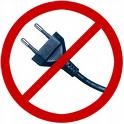Getting Off The Grid

This post is the second installment in a series considering Management-ism, which I started here. I first met Bob Ironside in the early eighties. He was then an Internist, working in a typical clinic he shared with a half dozen other docs. The waiting room was large enough to hold twenty or thirty patients. Staff worked behind a counter with a sliding glass window. A receptionist, several nurses, rows of shelves with patient files. The doctors saw patients in small rooms along a central hall, which was closed off from the waiting room by a door, guarded by one or another of the nurses. When a doctor was ready, a patient's name was called out, and the door to the examination rooms opened, and that patient was ushered down the hall.
In other words, a typical doctor's office. The most important information, more important it seemed than the patient's condition, was the condition of their insurance, for upon entering the office, every patient visited the sliding glass window and discussed how they would be paying. I was using my insurance, so the receptionist photocopied my insurance card, calculating the co-pay amount while I filled out forms. I felt like I was purchasing a vacuum cleaner on the installment plan. All typical doctor's office stuff. I waited quite a long time, and since I had left work in the middle of the afternoon for the appointment, I noticed the time going by. Finally, my name was called and a nurse accompanied me to the examination room where she weighed me, took my blood pressure, and told me that the doctor would arrive momentarily. A few minutes later, Bob entered the room. We chatted. His "manner" was casual and focused. He seemed genuinely interested in knowing about me. A few minutes into the examination, he explained that he was breaking a rule. What rule, I wondered. "The Health Management Organization (HMO) monitoring this clinic," he reported, "has calculated that I should need to spend no more than seven minutes with any individual patient." he announced. "But I need at least a half hour to get to know anyone well enough to diagnose for them, so I break the rule, especially when the patient is someone interesting like you." I felt flattered, but also felt the indignation Bob was spewing. He was genuinely upset. He continued, explaining that the geniuses at the HMO were not doctors but statisticians, accountants, auditors, and professional managers, none of whom had ever performed even the simplest diagnoses on any patient. I felt as oppressed as Bob obviously did. He spent his half hour, made a recommendation or two, and we parted. Over the following years, I followed Bob to a couple of other clinics, one's he and his colleagues started to try to sidestep the hated HMO. Over a decade later, he confided to me that he was not making it, that the management oversight had become simply absurd. Three quarters of the employees of his latest clinic worked not in patient care, but in billing and collections. Insurance companies further discounted standard charges by an average of 40% (for the service they provided processing their client's claims), and extended payment terms beyond 180 days. "How can anyone run a business with conditions like this? The efficiency experts claim savings by adding overhead to my organization, while the insurance companies walk away with terms favorable only to them. They're bankrupting me!" He also reported that insurance coverage seemed to encourage patients to be less responsible about their health, seeing health care as a right rather than a shared responsibility. He went on to say that he was thinking very seriously of simply going off the grid. I'd not heard that term before, so he explained that his vision was to start a clinic where insurance would not be accepted as a valid form of payment, where patients contracted directly with him for his services, prepaying to eliminate billing and collections, in return for care without the management. Fast forward a decade. I have been thinking about the off the grid model, and wanted to get a horse's mouth description of it, so I emailed Bob, asking for some face-time to chat. I spoke with his admin, and scheduled a late afternoon hour in his new off-the-grid office. The offices of D To be continued. This posting is long enough for today.


